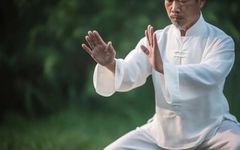Currently, aging has become a global concern. The theory of Jing-Qi-Shen (精气神) based on the concept of Qi and meridians states: “Jing is the origin of life, Qi is the driving force of life, and Shen is the manifestation of life.” This holistic view explains key scientific issues such as the formation of life, the dynamics of life, organ functions, and cognitive processes, proposing that the key pathological mechanism of aging is kidney essence deficiency (肾精虚衰), which is fundamental to aging, while deficiency of Yuan Qi (元气亏虚) is crucial, and depletion of form and spirit (形神耗损) is a manifestation of aging.
It emphasizes that the longevity of life depends on the flourishing or decline of Jing, Qi, and Shen. Deficiency of Jing affects the five organs, which is a common pathological mechanism leading to systemic aging and related diseases, establishing the treatment principle of tonifying the kidneys and filling essence, harmonizing Yin and Yang, warming and supporting Yuan Qi, and nourishing form and spirit. For conditions such as impotence, premature ejaculation, oligospermia, weakness in the lower back and knees, fatigue, and neurasthenia, clinical applications may include Jianshen Quanju Wan (健身全鹿丸), Bazi Bushen Jiao Nang (八子补肾胶囊), and Suoyang Gujing Wan (锁阳固精丸) to tonify the kidneys and fill essence, addressing both root and branch issues.
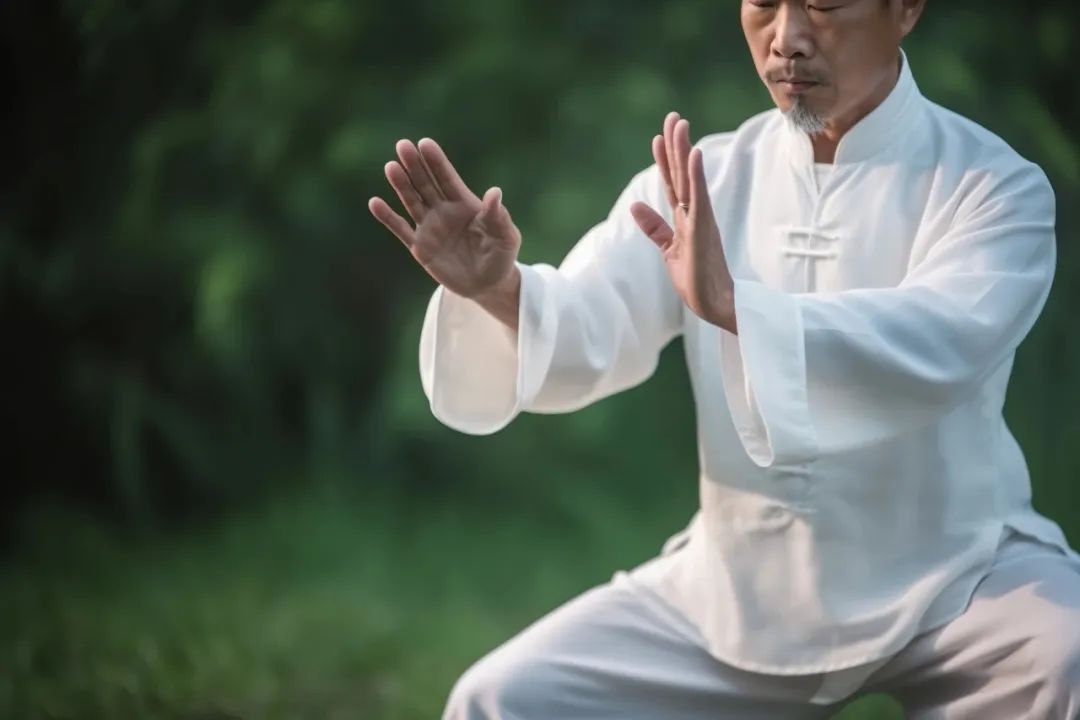
1. Jianshen Quanju Wan (健身全鹿丸)
Ingredients: Huang Qi (黄芪, Astragalus membranaceus, honey-fried), Ren Shen (人参, Panax ginseng, peeled), Wu Wei Zi (五味子, Schisandra chinensis, vinegar-fried), Lu Jiao (鹿角, deer antler), Ma Lu Rong (马鹿茸, deer velvet, hair-removed), Yin Yang Huo (淫羊藿, Epimedium, sheep oil-fried), fresh deer meat (with bones), Rou Cong Rong (肉苁蓉, Cistanche deserticola, wine-fried), Suo Yang (锁阳, Cynomorium songaricum), Tu Si Zi (菟丝子, Cuscuta chinensis), Hu Lu Ba (胡芦巴, Trigonella foenum-graecum, salt-fried), Fu Pen Zi (覆盆子, Rubus idaeus), Chao Shi Zi (楮实子, Broussonetia papyrifera), Hua Jiao (花椒, Zanthoxylum bungeanum, peeled), Xiao Hui Xiang (小茴香, Foeniculum vulgare, salt-fried), Shu Di Huang (熟地黄, Rehmannia glutinosa), Huai Niu Xi (怀牛膝, Achyranthes bidentata, head-removed), Sang Ji Sheng (桑寄生, Taxillus chinensis), Dang Gui (当归, Angelica sinensis), Tian Dong (天冬, Asparagus cochinchinensis), Mai Dong (麦冬, Ophiopogon japonicus), Qiu Shi (秋石, stone), Fu Ling (茯苓, Poria cocos), Gan Cao (甘草, Glycyrrhiza uralensis), Chen Pi (陈皮, dried tangerine peel), Da Qing Yan (大青盐, large blue salt), Shan Yao (山药, Dioscorea opposita), Bai Zhu (白术, Atractylodes macrocephala), Qian Shi (芡实, Euryale fox, wheat-fried), Bu Guo Zhi (补骨脂, Psoralea corylifolia, salt-fried), Xu Duan (续断, Dipsacus asperoides), Gou Qi Zi (枸杞子, Lycium barbarum), Chuan Xiong (川芎, Ligusticum chuanxiong), Di Huang (地黄, Rehmannia glutinosa), Chen Xiang (沉香, Aquilaria sinensis).
This formula tonifies essence, nourishes blood, benefits Qi, and warms Yang to secure essence. It is used for symptoms caused by kidney essence deficiency and insufficient Qi and blood, such as mental fatigue, weakness in the lower back and knees, impotence, nocturnal emissions, dim vision, tinnitus, insomnia, forgetfulness, women’s blood deficiency and cold uterus, menorrhagia, infertility, and miscarriage. Additionally, it can be used for symptoms of kidney Yang deficiency such as cold limbs, especially in the lower extremities, aversion to cold, preference for warmth, abdominal cold pain, frequent urination or difficulty urinating, shortness of breath, and edema.
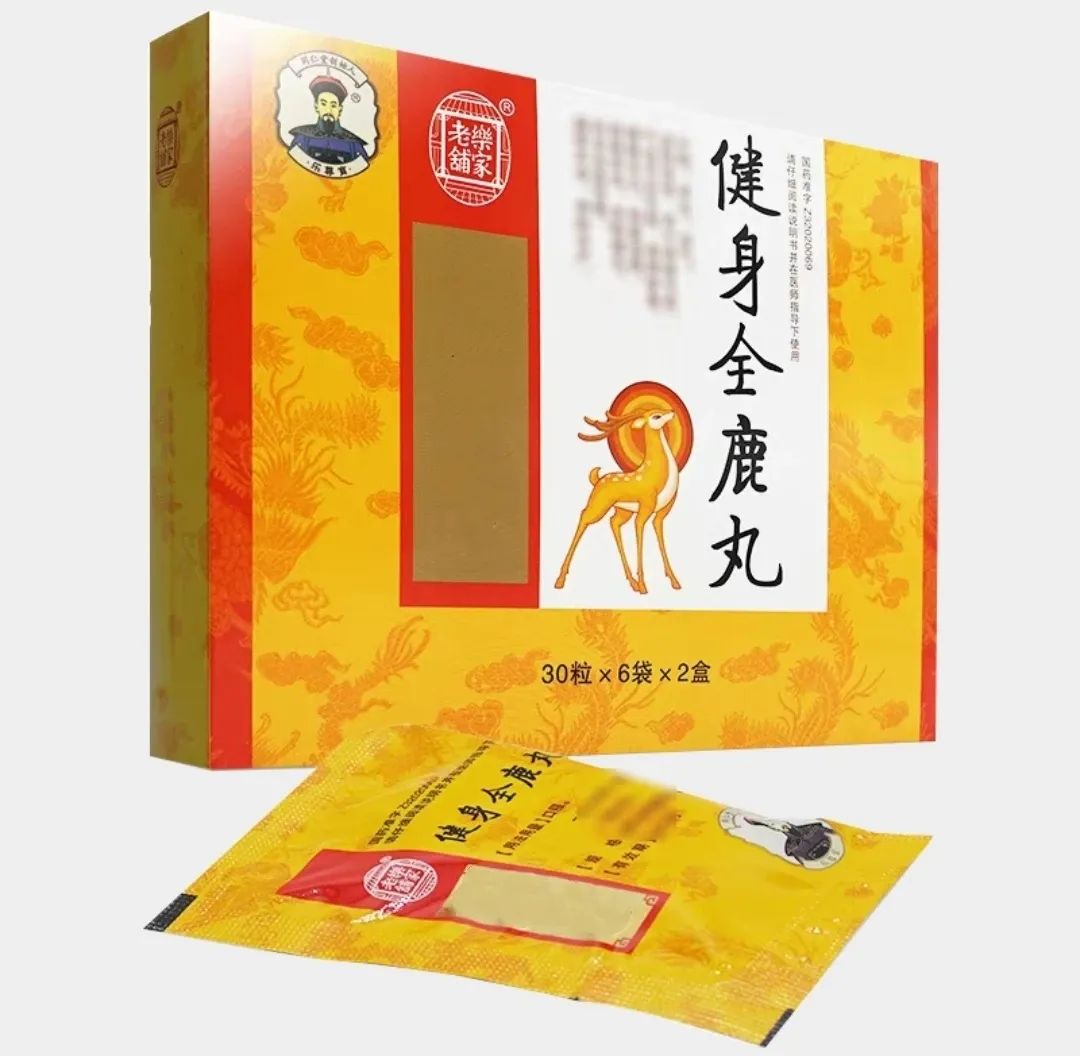
According to the Guangxu edition of the Tongrentang Yaomu (同仁堂药目), under the section for tonics, it is recorded: “This medicine supplements both Qi and blood, suitable for both men and women, and treats all deficiencies and damages.” Later generations have created variations such as Jianshen Quanju Wan and Wen Shen Quanju Wan based on the common clinical presentations of kidney essence deficiency and kidney Yang deficiency, making it more suitable for clinical patients.
Chief Herbs: Jianshen Quanju Wan uses Lu Jiao (鹿角, deer antler), Qing Mao Lu Rong (青毛鹿茸, green velvet), and fresh deer meat (带骨, with bones) to gather the essence of the entire deer, serving as the chief herbs of the formula. Their properties are salty and warm, soft and moist, warming and tonifying the kidney and governing vessel, acting gently to assist kidney Yang, generate essence, and strengthen bones.
Deputy Herbs: Shu Di Huang (熟地黄, Rehmannia glutinosa), Sheng Di Huang (生地黄, raw Rehmannia), Chao Shi Zi (楮实子, Broussonetia papyrifera), Gou Qi Zi (枸杞子, Lycium barbarum), Dang Gui (当归, Angelica sinensis), Chuan Xiong (川芎, Ligusticum chuanxiong), Tian Dong (天冬, Asparagus cochinchinensis), Mai Dong (麦冬, Ophiopogon japonicus), Wu Wei Zi (五味子, Schisandra chinensis), Fu Pen Zi (覆盆子, Rubus idaeus), Qian Shi (芡实, Euryale fox), Sang Ji Sheng (桑寄生, Taxillus chinensis) nourish Yin and blood, filling true Yin; Rou Cong Rong (肉苁蓉, Cistanche deserticola), Tu Si Zi (菟丝子, Cuscuta chinensis), Bu Guo Zhi (补骨脂, Psoralea corylifolia), Huai Niu Xi (怀牛膝, Achyranthes bidentata), and Yin Yang Huo (淫羊藿, Epimedium) tonify the kidneys and assist Yang, strengthening bones; Ren Shen (人参, Panax ginseng), Huang Qi (黄芪, Astragalus membranaceus), Bai Zhu (白术, Atractylodes macrocephala), Fu Ling (茯苓, Poria cocos), and Gan Cao (甘草, Glycyrrhiza uralensis) tonify Qi and strengthen the spleen, supporting the postnatal foundation to nourish the prenatal; all deputy herbs work together to supplement both Yin and Yang, supporting the root of the prenatal.
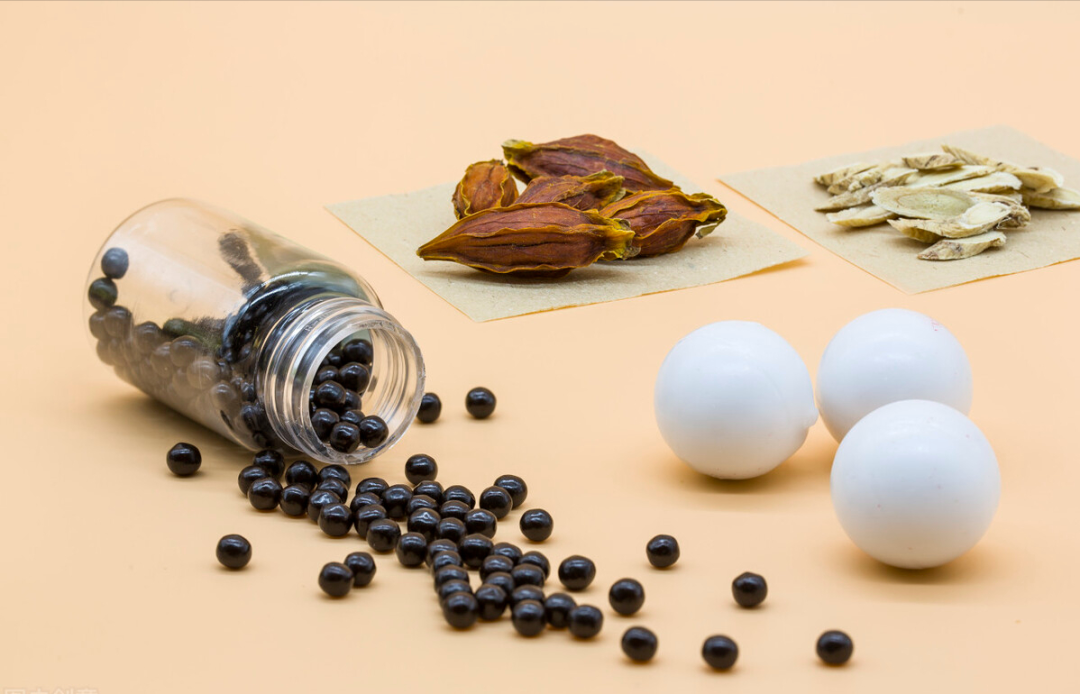
Assistant Herbs: This formula primarily focuses on warming the kidneys and assisting Yang, supplemented with red pepper and fennel to warm the middle and disperse cold, which can help the warming and Yang-assisting herbs eliminate the symptoms of Yin deficiency and cold.
Envoy Herbs: The envoy herbs Chen Pi (陈皮, dried tangerine peel) and Chen Xiang (沉香, Aquilaria sinensis) regulate Qi and strengthen the spleen, descending Qi and adjusting the flow, ensuring that the nourishing properties of the tonic do not cause obstruction. Qiu Shi (秋石, stone) and Da Qing Yan (大青盐, large blue salt) are salty and enter the kidney, guiding the tonifying herbs into the kidney meridian to enhance their kidney tonifying effects.
When taking Jianshen Quanju Wan, it is important to note that it is contraindicated for those with Yin deficiency and excess heat, liver Yang rising, internal heat, and patients with colds and fevers. During medication, avoid raw and cold foods, and limit sexual activity.
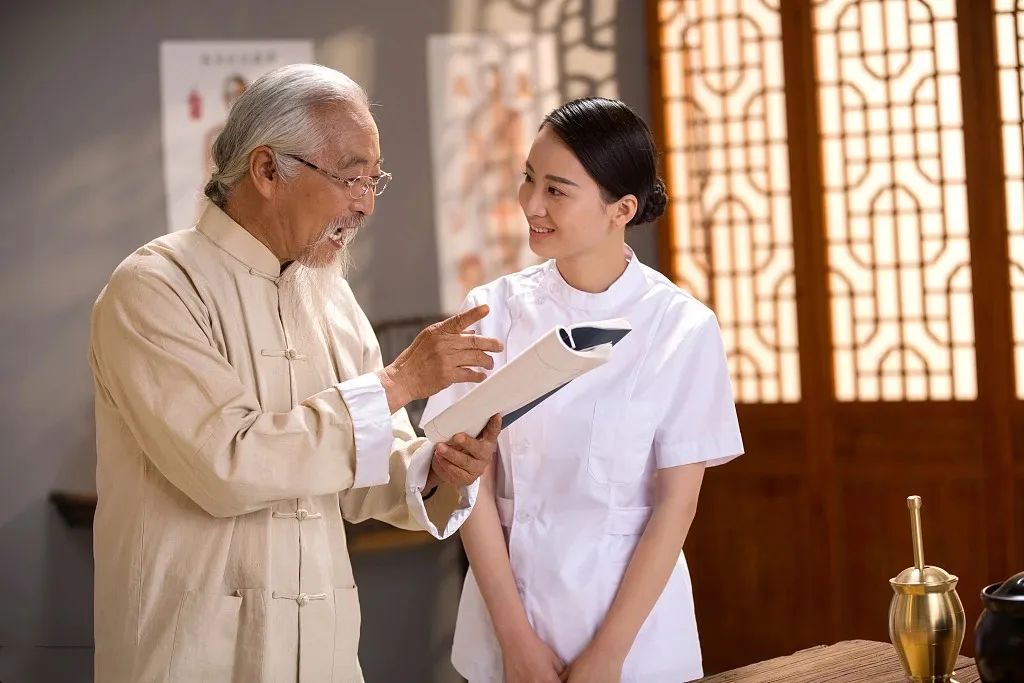
2. Bazi Bushen Jiao Nang (八子补肾胶囊)
Ingredients: Tu Si Zi (菟丝子, Cuscuta chinensis), Gou Qi Zi (枸杞子, Lycium barbarum), Wu Wei Zi (五味子, Schisandra chinensis), She Chuang Zi (蛇床子, Cnidium monnieri), Jin Ying Zi (金樱子, Rosa laevigata), Fu Pen Zi (覆盆子, Rubus idaeus), Jiu Cai Zi (韭菜子, Allium tuberosum), Chuan Lian Zi (川楝子, Melia toosendan), Yin Yang Huo (淫羊藿, Epimedium), Ba Ji Tian (巴戟天, Morinda officinalis), Rou Cong Rong (肉苁蓉, Cistanche deserticola), Di Huang (地黄, Rehmannia glutinosa), Chuan Niu Xi (川牛膝, Achyranthes bidentata), Ren Shen (人参, Panax ginseng), Lu Rong (鹿茸, deer velvet), Hai Ma (海马, Hippocampus).
This formula tonifies the kidneys and warms Yang. It is suitable for symptoms caused by kidney Yang deficiency such as lower back and knee pain, dizziness, tinnitus, mental fatigue, forgetfulness, and cold limbs.
Traditional Chinese medicine states: “Among the true essences of the five organs, the kidney is the root”; “When essence is abundant, Qi is vigorous; when Qi is vigorous, Shen is complete; when Shen is complete, the body is healthy”; “With sufficient essence, no diseases arise.” This indicates that the kidney is the foundation of the five organs and six bowels, and when the essence and Qi in the kidney are abundant, the source of transformation and function of the five organs and six bowels can be fully realized.
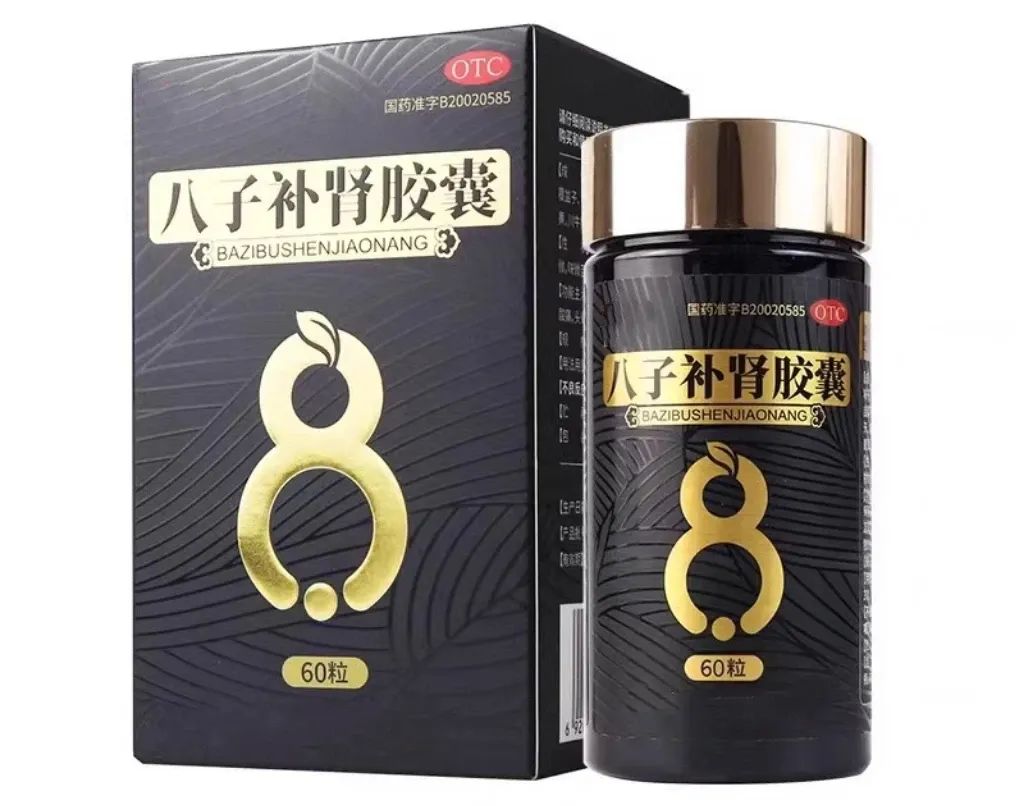
Bazi Bushen Jiao Nang is fundamentally based on tonifying kidney essence, using eight types of seed herbs such as Tu Si Zi (菟丝子, Cuscuta chinensis), Gou Qi Zi (枸杞子, Lycium barbarum), Wu Wei Zi (五味子, Schisandra chinensis), She Chuang Zi (蛇床子, Cnidium monnieri), Jin Ying Zi (金樱子, Rosa laevigata), Fu Pen Zi (覆盆子, Rubus idaeus), Jiu Cai Zi (韭菜子, Allium tuberosum), and Chuan Lian Zi (川楝子, Melia toosendan) to nourish and fill kidney essence, taking advantage of their ability to “nourish the Yin of the five organs and benefit Qi” and “strengthen kidney Qi”.
It is paired with Di Huang (地黄, Rehmannia glutinosa) to nourish kidney Yin, while Yin Yang Huo (淫羊藿, Epimedium), Ba Ji Tian (巴戟天, Morinda officinalis), and Rou Cong Rong (肉苁蓉, Cistanche deserticola) warm and support kidney Yang, harmonizing Yin and Yang, allowing Yin to support Yang, generating endless transformations, and allowing Yang to support Yin, ensuring a continuous source. Additionally, Ren Shen (人参, Panax ginseng) is included to warm and support Yuan Qi, achieving the effects of “tonifying the five organs, calming the spirit, stabilizing the soul… uplifting intelligence, and prolonging life with long-term use”.
It also incorporates the experience of Ye Tianshi in using blood and flesh products to tonify the kidneys and fill essence, combining Lu Rong (鹿茸, deer velvet) and Hai Ma (海马, Hippocampus) to enhance the effects of tonifying kidney essence. The entire formula tonifies kidney essence, harmonizes Yin and Yang, warms and supports Yuan Qi to nourish form and spirit, exhibiting anti-aging effects by tonifying essence, transforming Qi, and nourishing spirit.
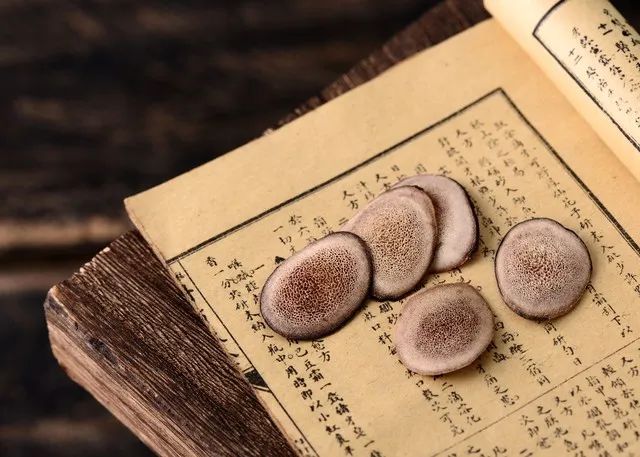
Bazi Bushen Jiao Nang shows significant improvement in overall aging and functional decline in multiple systems such as the cardiovascular, nervous, musculoskeletal, and reproductive systems, as well as aging-related diseases.
Pharmacological studies indicate that this formulation can enhance resistance to external stimuli, prolong lifespan, improve the overall appearance of aging, effectively inhibit the formation of atherosclerotic plaques, improve heart function, enhance cognitive function, promote bone synthesis, inhibit bone resorption, increase bone strength, improve muscle endurance, grip strength, and balance, and improve testicular morphology and spermatogenic function, enhancing sperm quality.
Clinical studies have confirmed that Bazi Bushen Jiao Nang significantly improves symptoms of kidney essence deficiency, markedly enhances exercise capacity, and effectively alleviates fatigue; it also improves hormone levels in patients with impotence, enhancing sexual function.

3. Suoyang Gujing Wan (锁阳固精丸)
Ingredients: Suo Yang (锁阳, Cynomorium songaricum), Rou Cong Rong (肉苁蓉, Cistanche deserticola, steamed), Zhi Ba Ji Tian (制巴戟天, Morinda officinalis), Bu Guo Zhi (补骨脂, Psoralea corylifolia, salt-fried), Tu Si Zi (菟丝子, Cuscuta chinensis), Du Zhong (杜仲, Eucommia ulmoides, charred), Ba Jiao Hui Xiang (八角茴香, Illicium verum), Jiu Cai Zi (韭菜子, Allium tuberosum), Qian Shi (芡实, Euryale fox, fried), Lian Zi (莲子, Nelumbo nucifera), Lian Xu (莲须, lotus stamen), Duan Mu Li (煅牡蛎, calcined oyster), Long Gu (龙骨, calcined dragon bone), Lu Jiao Shuang (鹿角霜, deer antler powder), Shu Di Huang (熟地黄, Rehmannia glutinosa), Shan Zhu Yu (山茱萸, Cornus officinalis, processed), Mu Dan Pi (牡丹皮, Paeonia suffruticosa), Shan Yao (山药, Dioscorea opposita), Fu Ling (茯苓, Poria cocos), Ze Xie (泽泻, Alisma orientale), Zhi Mu (知母, Anemarrhena asphodeloides), Huang Bai (黄柏, Phellodendron amurense), Niu Xi (牛膝, Achyranthes bidentata), Da Qing Yan (大青盐, large blue salt).
This formula warms the kidneys and secures essence. It is used for symptoms caused by kidney Yang deficiency such as weakness in the lower back and knees, dizziness, tinnitus, nocturnal emissions, and premature ejaculation.
In this formula, Suo Yang (锁阳, Cynomorium songaricum) and Rou Cong Rong (肉苁蓉, Cistanche deserticola) work together to tonify kidney Yang, benefit essence and blood, and moisten the intestines to promote bowel movements. Paired with Shu Di Huang (熟地黄, Rehmannia glutinosa) and Shan Yu (山茱萸, Cornus officinalis), it has excellent effects in tonifying the kidneys and filling essence; Ba Ji Tian (巴戟天, Morinda officinalis), Bu Guo Zhi (补骨脂, Psoralea corylifolia), Lu Jiao Shuang (鹿角霜, deer antler powder), and Du Zhong (杜仲, Eucommia ulmoides) can warm the kidneys and strengthen Yang; Qian Shi (芡实, Euryale fox), Duan Long Gu (煅龙骨, calcined dragon bone), Duan Mu Li (煅牡蛎, calcined oyster), Lian Xu (莲须, lotus stamen), Shan Yao (山药, Dioscorea opposita), and Da Qing Yan (大青盐, large blue salt) can astringe essence and stop emissions, specifically targeting nocturnal emissions, impotence, and premature ejaculation; Zhi Mu (知母, Anemarrhena asphodeloides) and Huang Bai (黄柏, Phellodendron amurense) nourish Yin and reduce fire, clearing empty heat, while Mu Dan Pi (牡丹皮, Paeonia suffruticosa) and Ze Xie (泽泻, Alisma orientale) prevent excessive dampness, enhancing the nourishing effects.
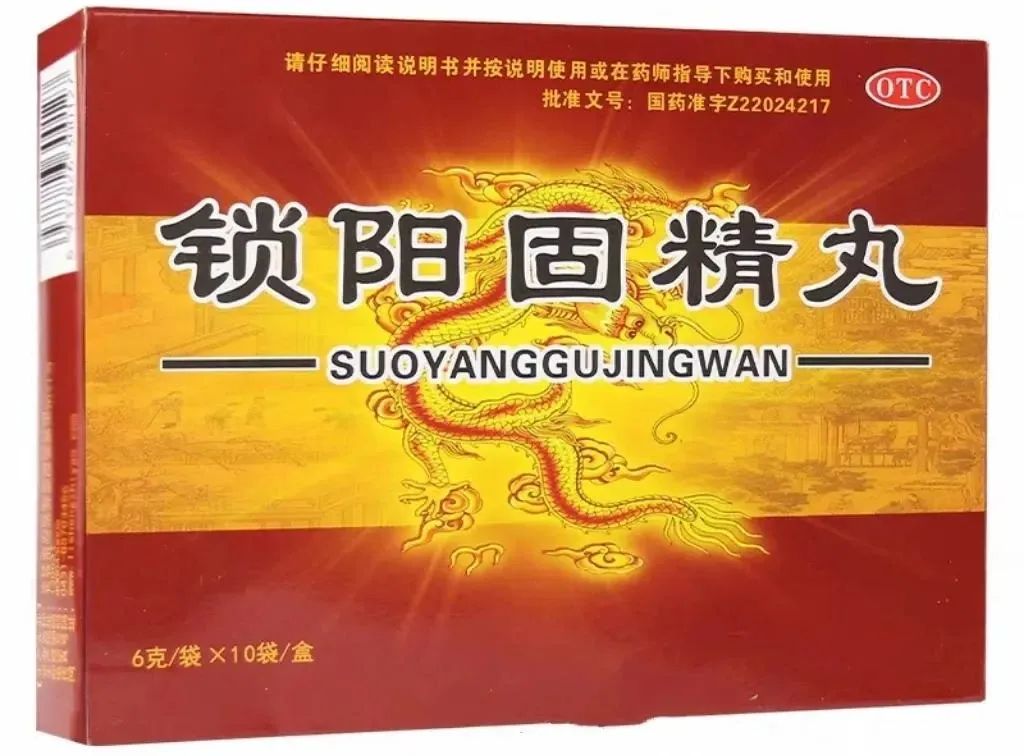
Modern research has confirmed that Ba Ji Tian (巴戟天, Morinda officinalis), Suo Yang (锁阳, Cynomorium songaricum), and Lu Jiao Shuang (鹿角霜, deer antler powder) can enhance adrenal cortex function; Ba Ji Tian (巴戟天, Morinda officinalis), Suo Yang (锁阳, Cynomorium songaricum), Rou Cong Rong (肉苁蓉, Cistanche deserticola), and Du Zhong (杜仲, Eucommia ulmoides) can promote gonadal function; Lu Jiao Shuang (鹿角霜, deer antler powder), Suo Yang (锁阳, Cynomorium songaricum), Bu Guo Zhi (补骨脂, Psoralea corylifolia), and Tu Si Zi (菟丝子, Cuscuta chinensis) have effects on promoting semen production and secretion; Bu Guo Zhi (补骨脂, Psoralea corylifolia), Du Zhong (杜仲, Eucommia ulmoides), and Shu Di Huang (熟地黄, Rehmannia glutinosa) have antibacterial effects; at the same time, Suo Yang (锁阳, Cynomorium songaricum), Tu Si Zi (菟丝子, Cuscuta chinensis), Du Zhong (杜仲, Eucommia ulmoides), and Fu Ling (茯苓, Poria cocos) also enhance the body’s immune function.

